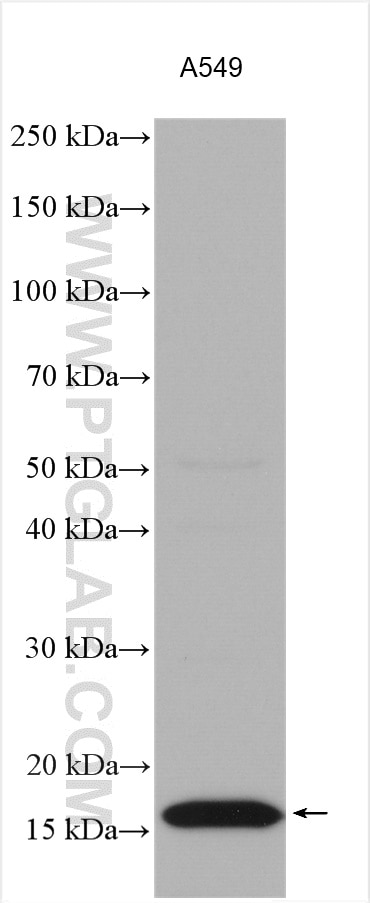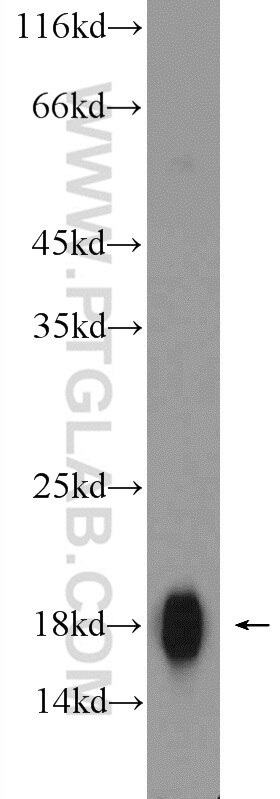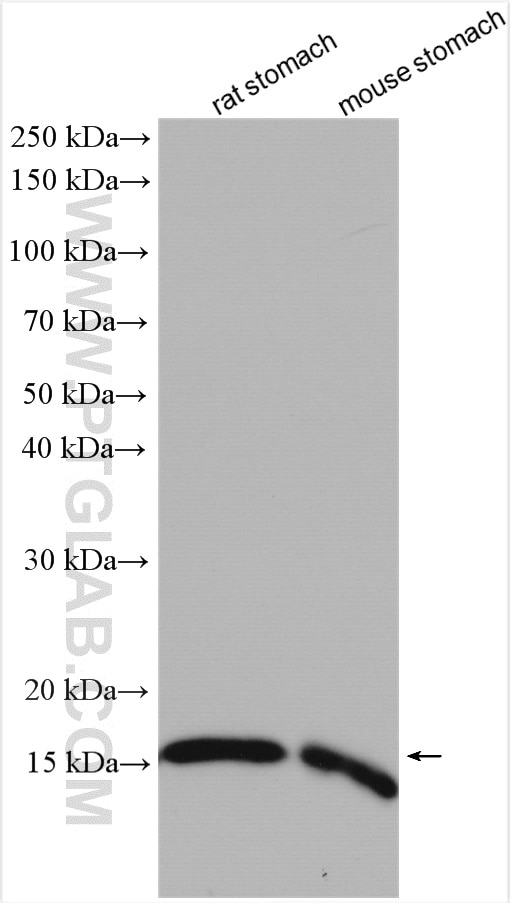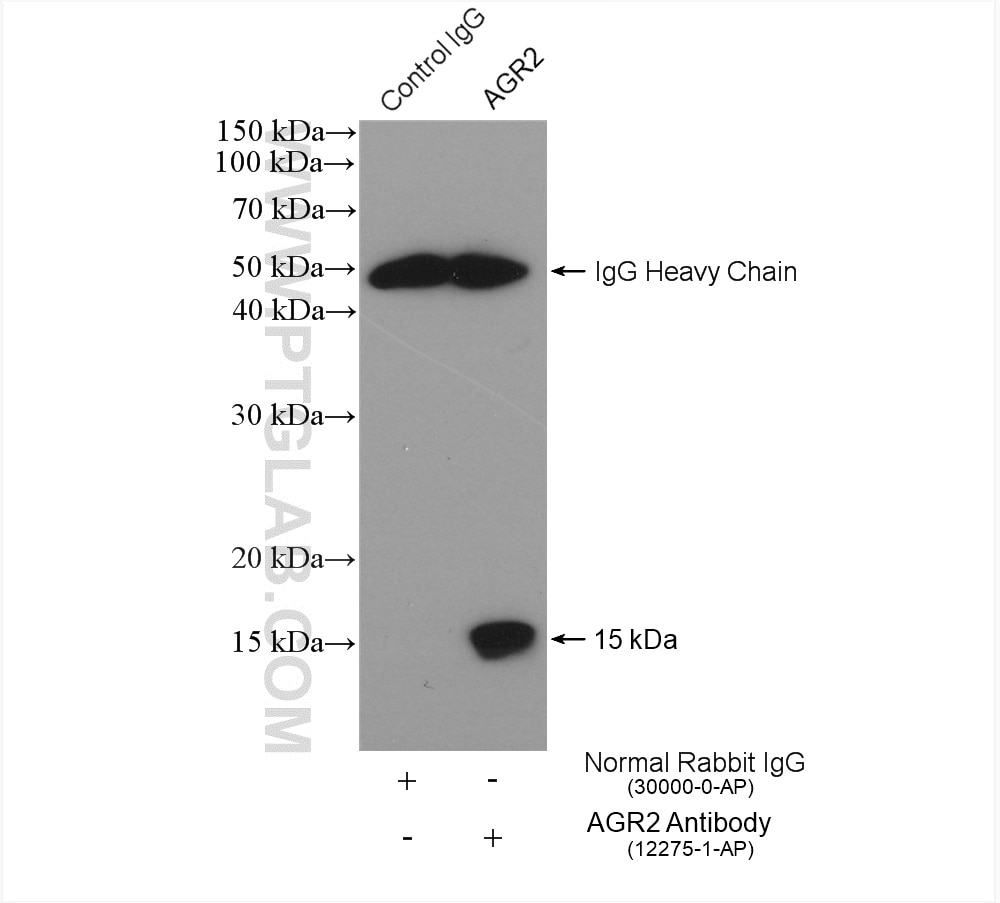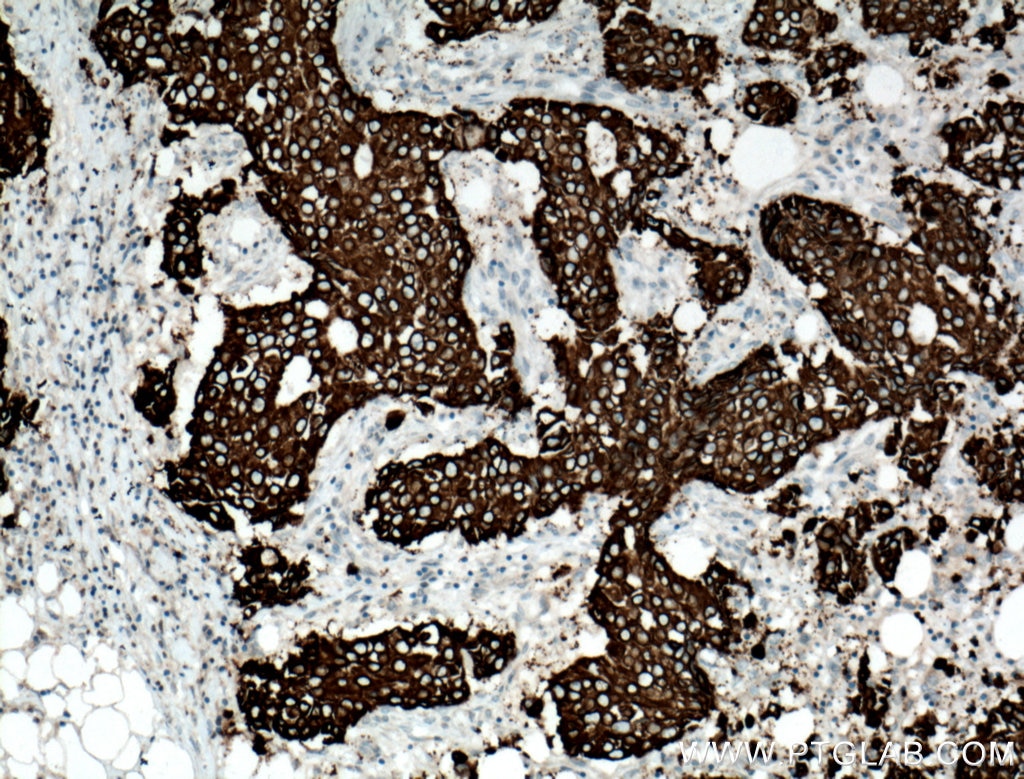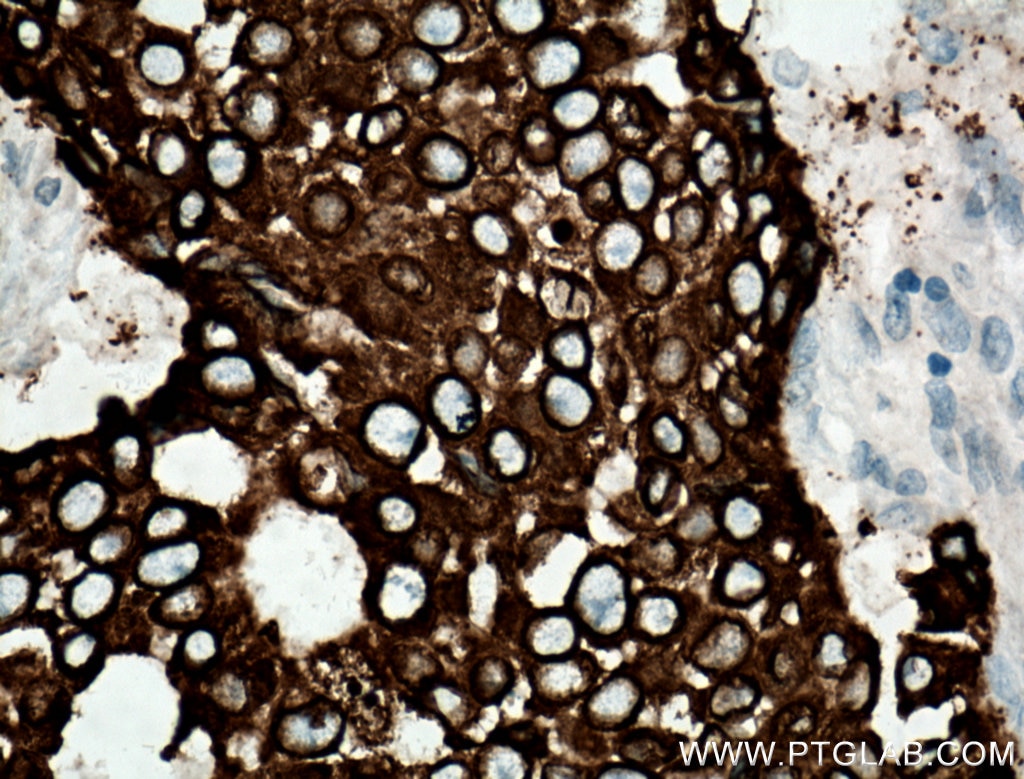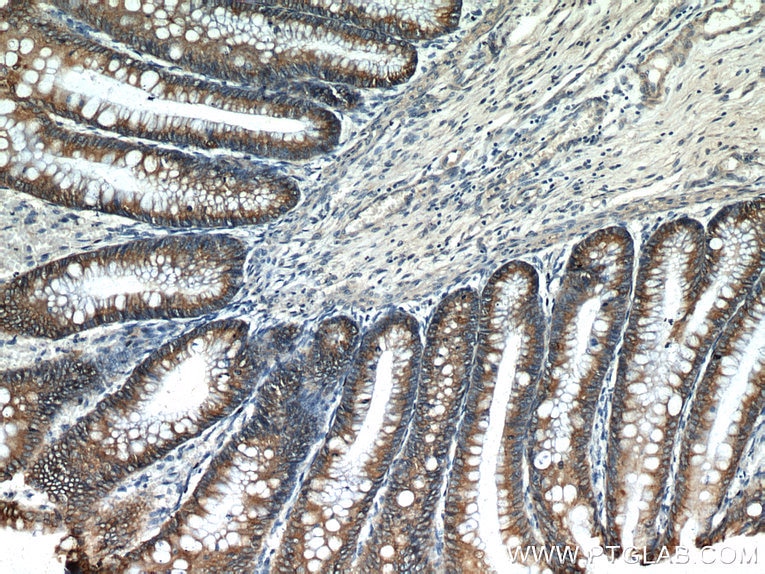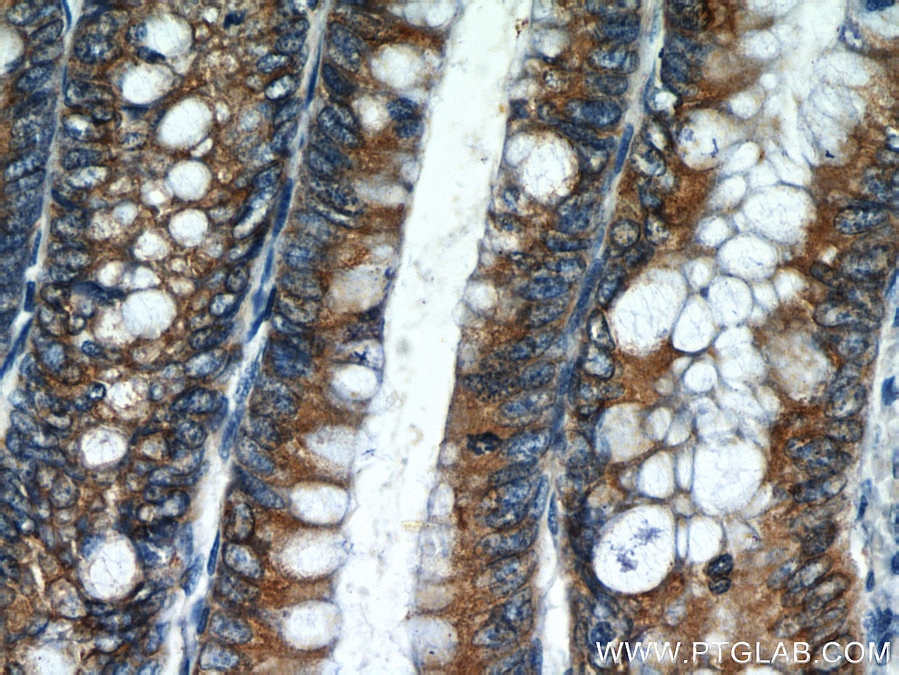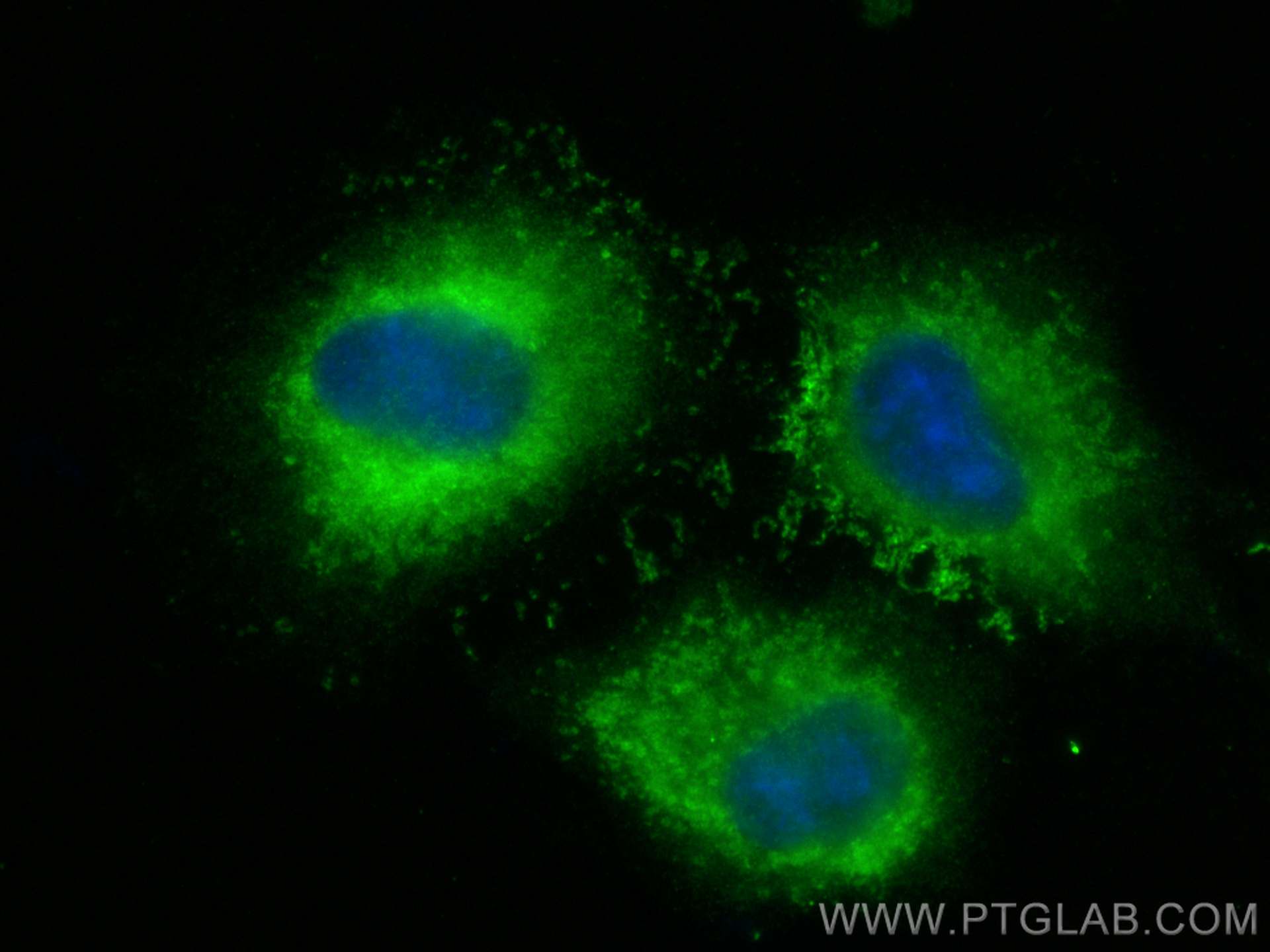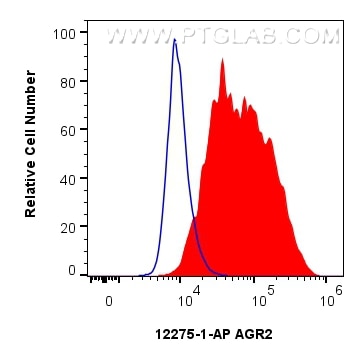- Featured Product
- KD/KO Validated
AGR2 Polyklonaler Antikörper
AGR2 Polyklonal Antikörper für WB, IHC, IF/ICC, FC (Intra), IP, ELISA
Wirt / Isotyp
Kaninchen / IgG
Getestete Reaktivität
human, Maus, Ratte
Anwendung
WB, IHC, IF/ICC, FC (Intra), IP, ELISA
Konjugation
Unkonjugiert
Kat-Nr. : 12275-1-AP
Synonyme
Geprüfte Anwendungen
| Erfolgreiche Detektion in WB | A549-Zellen, Maus-Magengewebe, Ratten-Kolongewebe, Ratten-Magengewebe |
| Erfolgreiche IP | A549-Zellen |
| Erfolgreiche Detektion in IHC | humanes Mammakarzinomgewebe, humanes Kolongewebe Hinweis: Antigendemaskierung mit TE-Puffer pH 9,0 empfohlen. (*) Wahlweise kann die Antigendemaskierung auch mit Citratpuffer pH 6,0 erfolgen. |
| Erfolgreiche Detektion in IF/ICC | A549-Zellen |
| Erfolgreiche Detektion in FC (Intra) | A549-Zellen |
Empfohlene Verdünnung
| Anwendung | Verdünnung |
|---|---|
| Western Blot (WB) | WB : 1:500-1:2000 |
| Immunpräzipitation (IP) | IP : 0.5-4.0 ug for 1.0-3.0 mg of total protein lysate |
| Immunhistochemie (IHC) | IHC : 1:50-1:500 |
| Immunfluoreszenz (IF)/ICC | IF/ICC : 1:50-1:500 |
| Durchflusszytometrie (FC) (INTRA) | FC (INTRA) : 0.40 ug per 10^6 cells in a 100 µl suspension |
| It is recommended that this reagent should be titrated in each testing system to obtain optimal results. | |
| Sample-dependent, check data in validation data gallery | |
Veröffentlichte Anwendungen
| KD/KO | See 2 publications below |
| WB | See 9 publications below |
| IHC | See 9 publications below |
| IF | See 7 publications below |
| IP | See 1 publications below |
Produktinformation
12275-1-AP bindet in WB, IHC, IF/ICC, FC (Intra), IP, ELISA AGR2 und zeigt Reaktivität mit human, Maus, Ratten
| Getestete Reaktivität | human, Maus, Ratte |
| In Publikationen genannte Reaktivität | human, Maus, Ratte |
| Wirt / Isotyp | Kaninchen / IgG |
| Klonalität | Polyklonal |
| Typ | Antikörper |
| Immunogen | AGR2 fusion protein Ag2919 |
| Vollständiger Name | anterior gradient homolog 2 (Xenopus laevis) |
| Berechnetes Molekulargewicht | 175 aa, 20 kDa |
| Beobachtetes Molekulargewicht | 17-20 kDa |
| GenBank-Zugangsnummer | BC015503 |
| Gene symbol | AGR2 |
| Gene ID (NCBI) | 10551 |
| Konjugation | Unkonjugiert |
| Form | Liquid |
| Reinigungsmethode | Antigen-Affinitätsreinigung |
| Lagerungspuffer | PBS with 0.02% sodium azide and 50% glycerol |
| Lagerungsbedingungen | Bei -20°C lagern. Nach dem Versand ein Jahr lang stabil Aliquotieren ist bei -20oC Lagerung nicht notwendig. 20ul Größen enthalten 0,1% BSA. |
Hintergrundinformationen
AGR2, also named AG2 or HPC8, encodes anterior gradient protein 2 homolog which belongs to the AGR family. It is a secreted protein localized in endoplasmic reticulum. AGR2 plays roles in MUC2 post-transcriptional synthesis,secretion and production of mucus by intestinal cells. AGR2 was significantly elevated in the pancreatic juice from patients with pre-malignant conditions as well as pancreatic cancer compared to control pancreatic juice samples. AGR2 levels in pancreatic juice could potentially be used in assessment of high-risk patients undergoing endoscopic procedures.
Protokolle
| PRODUKTSPEZIFISCHE PROTOKOLLE | |
|---|---|
| WB protocol for AGR2 antibody 12275-1-AP | Protokoll herunterladen |
| IHC protocol for AGR2 antibody 12275-1-AP | Protokoll herunterladenl |
| IF protocol for AGR2 antibody 12275-1-AP | Protokoll herunterladen |
| IP protocol for AGR2 antibody 12275-1-AP | Protokoll herunterladen |
| STANDARD-PROTOKOLLE | |
|---|---|
| Klicken Sie hier, um unsere Standardprotokolle anzuzeigen |
Publikationen
| Species | Application | Title |
|---|---|---|
Nat Cell Biol Opposing Wnt signals regulate cervical squamocolumnar homeostasis and emergence of metaplasia. | ||
Nat Protoc Patient-derived and mouse endo-ectocervical organoid generation, genetic manipulation and applications to model infection. | ||
Cell Rep Med Distinctive multicellular immunosuppressive hubs confer different intervention strategies for left- and right-sided colon cancers | ||
Proc Natl Acad Sci U S A A discrete population of squamocolumnar junction cells implicated in the pathogenesis of cervical cancer. | ||
J Pathol A novel blueprint for 'top down' differentiation defines the cervical squamocolumnar junction during development, reproductive life, and neoplasia. | ||
Int J Cancer Unique recurrence patterns of cervical intraepithelial neoplasia following excision of the squamo-columnar junction. |
